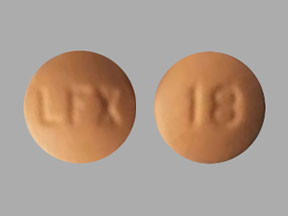Lucemyra and Alcohol/Food Interactions
There is 1 alcohol/food/lifestyle interaction with Lucemyra (lofexidine).
Lofexidine Food/Lifestyle
Moderate Food Interaction
Alcohol can increase the nervous system side effects of lofexidine such as dizziness, drowsiness, and difficulty concentrating. Some people may also experience impairment in thinking and judgment. You should avoid or limit the use of alcohol while being treated with lofexidine. Do not use more than the recommended dose of lofexidine, and avoid activities requiring mental alertness such as driving or operating hazardous machinery until you know how the medication affects you. Talk to your doctor or pharmacist if you have any questions or concerns.
Switch to professional interaction data
Lucemyra drug interactions
There are 555 drug interactions with Lucemyra (lofexidine).
Lucemyra disease interactions
There are 5 disease interactions with Lucemyra (lofexidine) which include:
More about Lucemyra (lofexidine)
- Lucemyra consumer information
- Check interactions
- Compare alternatives
- Pricing & coupons
- Reviews (47)
- Drug images
- Side effects
- Dosage information
- Patient tips
- During pregnancy
- Generic availability
- FDA approval history
- Drug class: antiadrenergic agents, centrally acting
- Breastfeeding
- En español
Related treatment guides
Drug Interaction Classification
| Highly clinically significant. Avoid combinations; the risk of the interaction outweighs the benefit. | |
| Moderately clinically significant. Usually avoid combinations; use it only under special circumstances. | |
| Minimally clinically significant. Minimize risk; assess risk and consider an alternative drug, take steps to circumvent the interaction risk and/or institute a monitoring plan. | |
| No interaction information available. |
See also:
Further information
Always consult your healthcare provider to ensure the information displayed on this page applies to your personal circumstances.


